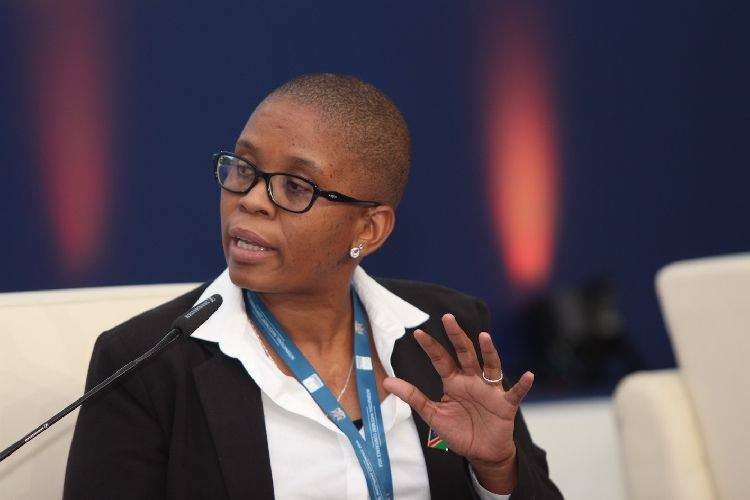Namibian Minister of Justice Yvonne Dausab led a workshop on Oct. 23 exploring the relationship between feminism, social justice, and the practice of law. Dausab’s talk was part of the Annie MacDonald Langstaff workshop series, which is held annually in commemoration of the first woman and single mother to obtain a law degree in Quebec, and aims to celebrate the increasing numbers of women in the legal field.McGill’s Centre for Human Rights and Legal Pluralism has been hosting this annual event since 1988.
Event coordinator Shauna Van Praagh spoke to The McGill Tribune about the importance of this annual workshop series.
“The point is to talk about the impact of feminist perspectives on law in different arenas through different roles and responsibilities that feminist jurists take on, whether they’re in government or an NGO, or as a lawyer or a dean of law school,” Van Praagh said.
Dausab expressed her desire for lawyers to use their position and expertise to work for citizens, stressing the importance of using legal systems to foster a culture of change in society. Dausab described a bottom-up approach to practicing law which focusses on constantly striving to obtain more and do better for neglected communities. She emphasized the need to continually advocate for those in need and to not stop at “enough” for those who are marginalized.
“Social justice is not a once-off project, Dausab said. “t’s transformative. If we don’t see a transformation of our society, it may be difficult to say that we have done enough as lawyers in our country to enhance that trajectory.”
According to Dausab, in order to have a legal system that truly works for its community, the benefits of the system must be accessible to marginalized groups and address certain core criteria.
“The first thing that you’re talking about is courts,” Dausab said. “Do we have court infrastructure available? The second one is your availability of human resource capacity [and] the availability of legal representation. The other important one […] is what kind of jurisprudence are we developing? What kind of cases are being heard?”
Minister Dausab spoke at length about her experience as a prominent woman in law, a position she achieved despite the challenges of growing up in Namibia during apartheid rule. Though the representation of women is increasing in the legal arena, gender disparities in the number of women in law still persist. Minister Dausab explained that, as a woman in a position of power, she feels she has an especially strong obligation to represent all women. She believes that all women face the same pressures to conform to gender based stereotypes, regardless of their personal accomplishments in the professional world.
“One of the biggest challenges [women] are facing is that whereas they are competing with [men] who have support in the form of a wife, or girlfriend, she is the support [for her family],” Dausab said. “Those dynamics don’t all of a sudden change because I’m the Minister of Justice.”
During the workshop, attendees were encouraged to think more deeply about the intersection of feminism and the Canadian legal system. For Vishakha Wijenakaye, a third-year doctoral candidate studying international human rights law, Minister Dausab’s statements about the relationship between her identity as a woman and as a legal academic were particularly salient.
“Her vision that doctoral students should try to create positive change through their work resonated with me,” Wijenakaye said. “Learning about her personal experiences also highlighted the fact that my work, whether as a doctoral student or as a practicing lawyer, cannot be entirely separated from my identity [as a woman] and background.”








